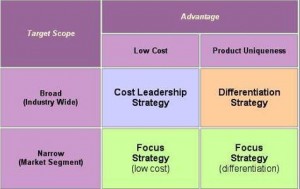People assume that being the first in everything would give you the first-mover advantage. It’s true in some cases, but it’s not necessarily that. Take for example Apple. I came across an online entry listing the things that Apple wasn’t the first in, which turns out to be most of their products. iPhone was certainly not the first smartphone and even Apple wasn’t the first to operate OS X system.
So, what makes them one of the most successful tech companies now? Apple approaches the customer in the simplest way. According to Ries and Trout, information overload is what makes customers shut down anything inconsistent with their knowledge and experience. What Apple did differently from their rivals is that their advertisement has always been succinct yet explanatory. The below example shows how ‘The biggest thing to happen to iPhone since iPhone’ which pretty much sums up how superior and large the new phone is compared to previous models.
Ries and Trout also pointed out that companies should not boast being the number one as it reflects insecurities. Apple never boast their superiority nor their success. I think what makes Apple really successful even if they are not the first is that they are not emphasizing on what they are the best in, instead they find the gap in the market and fill it in. Customers desire something that will be a lifestyle, not only something that fits their lifestyle. Apple did exactly that; making the brand a lifestyle that the customers live in.




